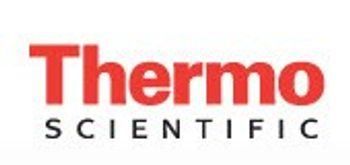
A new high-content screening software platform enables cancer researchers to uncover more about basic and advanced cellular function to accelerate cell-based research. The Thermo Scientific HCS Studio 2.0 is a high-content quantitative imaging and analysis software platform for a range of cancer research applications, including angiogenesis and migration/invasion, as well as the development of three-dimensional models of cancer stem cells and spheroid tumors.
The new Thermo Scientific HCS Studio 2.0, coupled with Thermo Scientific high content analysis platforms, are increasingly being used in cancer biology as they are well suited for large-scale, high-throughput biology, including complex morphological analyses of cells, cell structure, and aggregations of cells in colonies, yet simple enough to be applied to everyday assays such as viability and proliferation.
The Thermo Scientific HCS Studio 2.0 and the ArrayScan XTI High Content Analysis (HCA) platform will be demonstrated during the American Association for Cancer Research (AACR) 105th Annual Meeting (Booth #1107), April 5 - 9, 2014 at the San Diego Convention Center.
“The challenges posed by complex cancer applications and cell models demand new types of quantitative analysis techniques, and our new software continues to enable researchers with innovative assay techniques and functionality, allowing further discovery using complex cell models,” said Scott Keefer, manager of product marketing, cellular imaging and analysis, Thermo Fisher Scientific. “With our new HCS Studio 2.0 software, coupled with the Thermo Scientific ArrayScan XTI HCA Infinity Configuration enabled for 3D confocal imaging, our customers can address more assay and cell types than ever before while managing the complexities of high-content technology with user-guided, task-oriented software.”
Featuring a validated image processing tool and a powerful yet simple user interface, the HCS Studio 2.0 provides researchers with innovative assay techniques and functionality, allowing further discovery using complex cell models. Additional features include:
• Directed Assay or Full Development Environment: Pick from validated assays or a customized design with a full suite of image processing tools
• Simple interactive tools for assay optimization: Best-in-class user tools to improve the performance and accuracy of image analysis on cells
• Seamless Integration: Works with software from Thermo Scientific High-Content Imaging platforms for a scalable quantitative cell analysis platform
